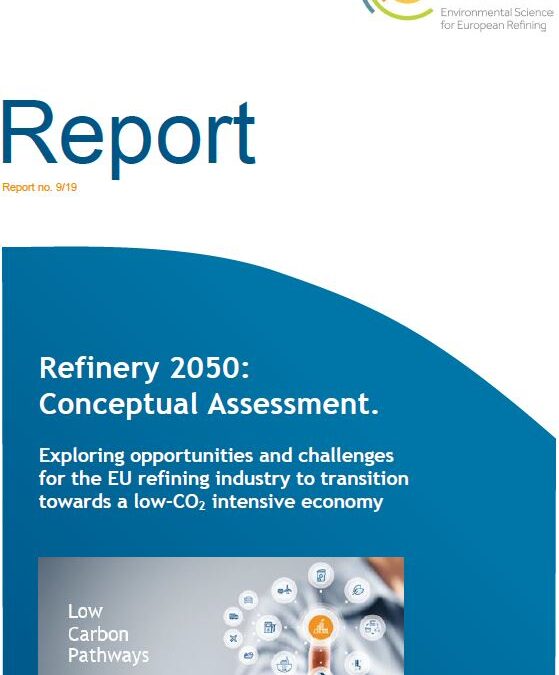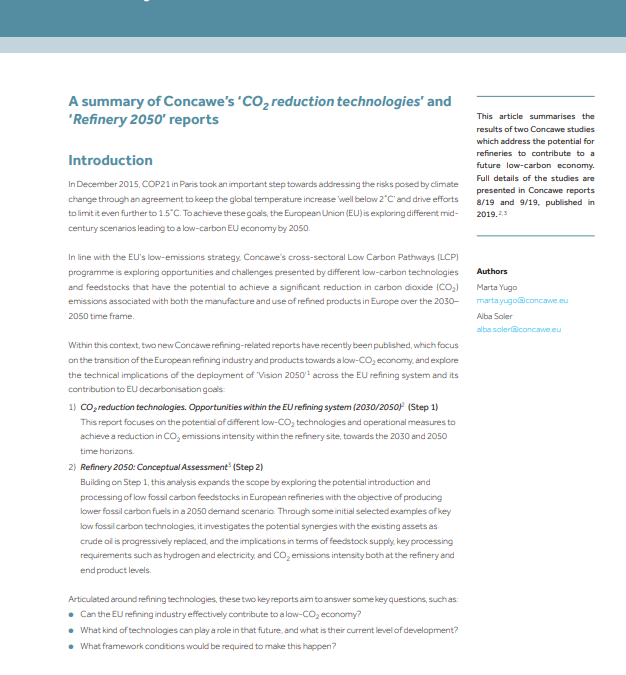

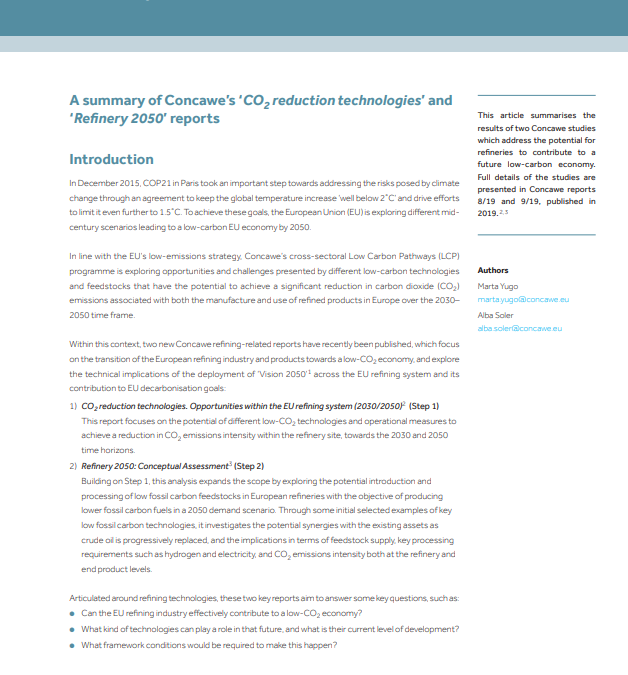
Exploring possible pathways for the EU refining system to contribute to a low-CO2 economy 29 in the 2030–2050 time frame (Concawe Review 29.1)
This article summarises the results of two Concawe studies which address the potential for refineries to contribute to a future low-carbon economy. Full details of the studies are presented in Concawe reports8/19 and 9/19, published in 2019.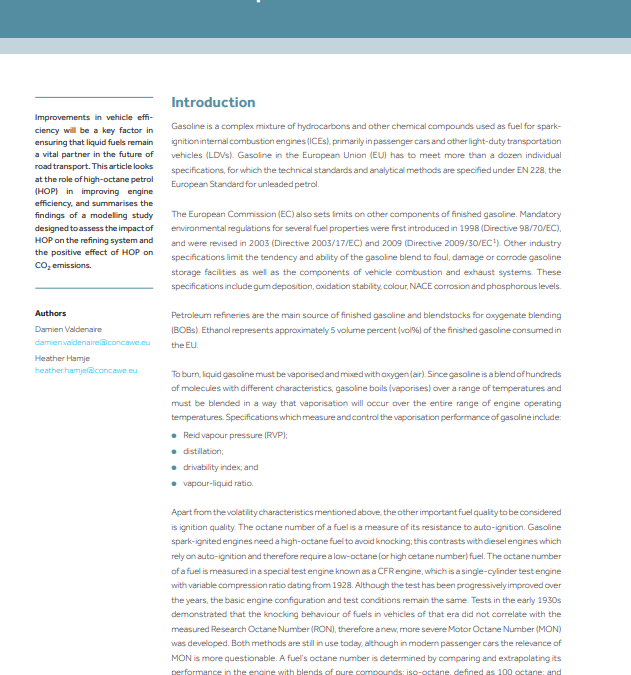
High-octane petrol (HOP) study: making gasoline relevant for the future of transport
Gasoline is a complex mixture of hydrocarbons and other chemical compounds used as fuel for spark-ignition internal combustion engines (ICEs), primarily in passenger cars and other light-duty transportation vehicles (LDVs). Gasoline in the European Union (EU) has to...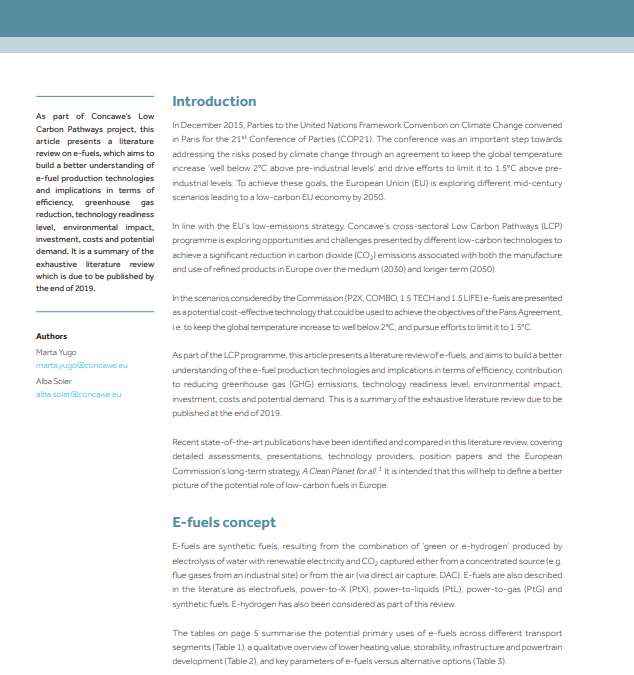
A look into the role of e-fuels in the transport system in Europe (2030–2050) (Concawe Review 28.1)
In December 2015, Parties to the United Nations Framework Convention on Climate Change convened in Paris for the 21st Conference of Parties (COP21). The conference was an important step towards addressing the risks posed by climate change through an agreement to keep...